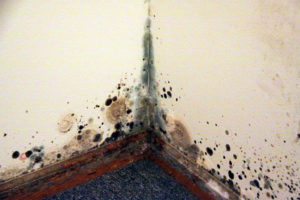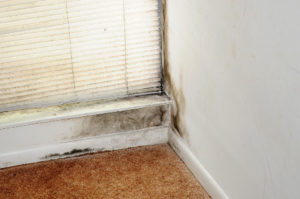Buying or Selling Real Estate – With Mold
Nothing scares home buyers away faster than discovering the dream home they were just about to hand over a bunch of cash for has a mold infestation. While some mold strains are more harmful than others, at the end of the day they are all the same to potential buyers. Because of this, you will want to be sure to cover yourself in the event that you find mold in the building you were planning on selling. You can start with these simple steps below.
Get an Inspection! It’s Better Than Finding out Later
Mold will grow just about anywhere there is moisture, which means it can probably be found in just about  any home in the United States. With this knowledge, it is highly advisable to bite the bullet and get a mold inspection done before you complete the sale of the property. While mold inspections aren’t cheap, paying to have one done will save you money in the long run if mold were to be found and you had done nothing. There are plenty of companies to turn to for inspections, and your best bet would be to find a national business with a branch in your area. You can find a list of mold removal company locations here. Simply call one of these companies and ask them to do a preliminary inspection of your home.
any home in the United States. With this knowledge, it is highly advisable to bite the bullet and get a mold inspection done before you complete the sale of the property. While mold inspections aren’t cheap, paying to have one done will save you money in the long run if mold were to be found and you had done nothing. There are plenty of companies to turn to for inspections, and your best bet would be to find a national business with a branch in your area. You can find a list of mold removal company locations here. Simply call one of these companies and ask them to do a preliminary inspection of your home.
The reasoning behind this is that if someone purchases your property and finds that there is a mold problem you didn’t disclose, you could be faced with a pricy lawsuit. It is best (in this authors opinion) to simply get an inspection, document it thoroughly, and let the potential buyer know it was done.
If you need an inspection, Toxic Mold USA provides lists of local companies that will be able to handle this for you!
I Found Mold. Now What?
If you find mold, it isn’t the end of the world. In fact, I recently sold a building that had a mold issue but, because of the step above this one, I found it before the sale. This really saved me because it turned out to be pretty extensive and, while the cost of remediation was high, was worth it to get rid of before the sale was made. After the inspection came back with the bad news, I called up a remediation company in NYC and they took care of the rest. I documented everything and made sure the buyer was aware of the fact that there was mold but that it had been totally remediated. Their home inspector did his tour and found everything was good to go, and they went through with the purchase.

The thing that made this sale successful was not that I had taken care of the mold, but that the company I used had identified the source (leak in the basement) and had fixed that as well. This decreases the likelihood that the mold will come back from that specific source, which is what the buyers really cared about.
Document and be Completely Upfront
Documentation is one of the keys to making sure everything is on the up and up and both buyer and seller know the situation. Leaving a paper trail not only covers you if something goes wrong down the line, but also gives the buyer peace of mind knowing you are doing your part to make sure everything is as it should be.
The bottom line is that you should always be upfront with your buyer and do your bit to ensure the property they are buying is in the condition they think it is when they showed interest in purchasing it. This is not only ethical, but is just a staple of good business, and will save both parties from a lot of headaches after the transaction is complete.
 any home in the United States. With this knowledge, it is highly advisable to bite the bullet and
any home in the United States. With this knowledge, it is highly advisable to bite the bullet and 
